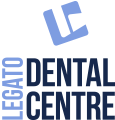
Overcoming Sleep Apnea Through Dental Expertise
A deep, restorative sleep is essential to your good health. Unfortunately, for many people a good night’s sleep is more of a luxury than a routine.
If you’ve found yourself fighting off excessive daytime sleepiness and a loss of concentration, or suffer from regular headaches or cardiovascular problems, there is a possibility you may have OSA. Although initially OSA may not seem like a serious condition, the repeated cycles of decreased oxygenation it causes can be at the root of all the above health complications and more.
At Legato Dental Centre, we specialize in dental devices for the successful treatment of OSA in Kelowna. For those patients who are either unable to use a ventilator (CPAP), or who simply have decided to look for alternate options, we offer our patients a number of dependable and non-invasive solutions.
In dentistry, our techniques for treating OSA are a little different than the CPAP, but no less effective. If you require assistance, or think you may suffer from OSA, our team would be happy to arrange a consultation to see what treatment is right for you.
Treatment Options
Effective treatment of obstructive sleep apnea in Kelowna.
Mandibular Advancement Device (MAD)
Similar in appearance to a sports mouth guard, this device forces the lower jaw forward and down slightly, keeping the airway open. The result is an increase in upper airway activity that prevents snoring and obstructive apneas.
The Mandibular Advancement Device (MAD) is a popular choice among our patients who find it easy to use and comfortable to wear during sleep.
Advantages of dental appliances to treat OSA:
- Cost-effective
- Comfortable and easy-to-use
- Enhanced quality of life
- Increased energy levels
- Improved cardiovascular health
- Reduces snoring
- Convenient for travel
- Does not require power supply
- Does not disturb sleep partner with noise
- Effective for those who don’t respond to behavioural treatments (positional therapy and/or weight loss)
Frequently Answered Questions
And little-known facts
How can an oral appliance help me manage obstructive sleep apnea?
A Prosthodontist understands the art and science of dental function and esthetics. Dr. Bishop pays particular attention to the coordination of teeth, jaw joints and muscles. This is very important in the fabrication of dentures. Denture service is our passion.
Do you guarantee it will work?
The American Academy of Sleep Medicine recognizes oral appliance as a first line therapy for mild and moderate obstructive sleep apnea. It is very effective in over 90% of cases. The examination is a very important part of determining the appropriateness of an oral appliance.
How will I know if the oral appliance is working?
We conduct a sleep study before and after using the oral appliance to ensure that the best result is achieved. Most importantly we communicate with your physician so that they are aware of your treatment progress.
Can I switch from CPAP?
Many of our patients have used CPAP in the past or use CPAP with an oral appliance. Some people switch to an oral appliance because they prefer the convenience of a small appliance for travel. Others find CPAP uncomfortable. Other simply switch because it does not make any noise to disturb bed partners.
What Causes OSA
Known as a type of sleep disordered breathing, obstructive sleep apnea (OSA) occurs when the tongue is drawn against the back of the throat and blocks the upper airway. When this happens, airflow stops until the oxygen level in the brain becomes low enough that the individual partially awakens. It’s then that the obstruction in the throat clears, allowing for the flow of air to begin again – often with a loud gasp.
Are Dental Devices Better Than a CPAP Machine?
One of the main treatments for OSA is a machine called the continuous positive airway pressure, or CPAP. Using a mask, CPAP helps keep airways open by pushing air down the throat at night using pressure. Although effective at treating OSA, there can be downsides. Chief among them are cost concerns, a decreased level of comfort, and the nuisance created by the machine’s noise. Although dental devices have none of these downfalls, it is largely what makes the patient most comfortable that will ultimately be the deciding factor between the two.

